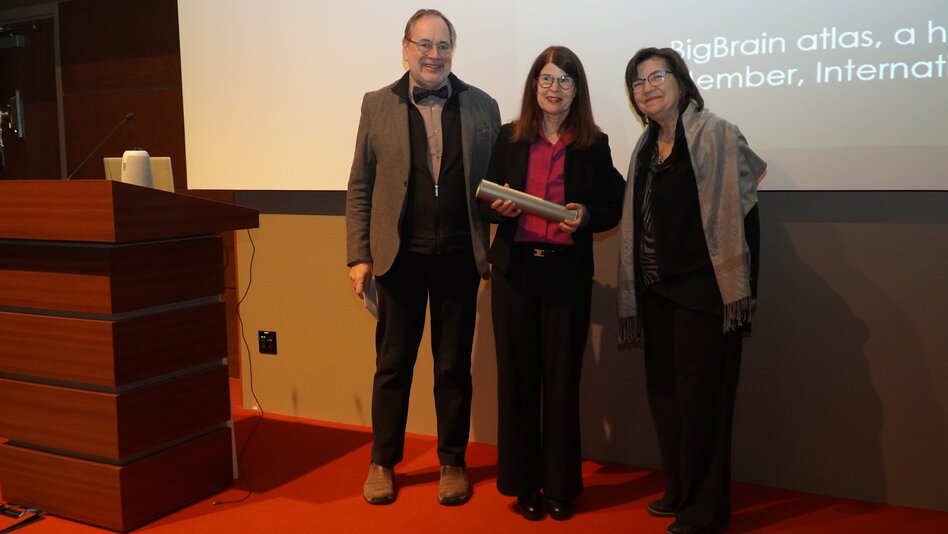Katrin Amunts has been honoured with the 2023 Justine and Yves Sergent International Award, which is granted to outstanding female researchers for contributions in the field of cognitive neuroscience and brain imaging who have achieved a high international reputation. The award was presented during a conference at the University of Montreal, Canada, on Friday, December 8th, where Katrin Amunts gave the keynote “The human brain atlas – mapping the brain as a way to understand its function.”
The JYS International Award is given annually by the Justine and Yves Sergent Fund, which has the goal of highlighting and encouraging excellence in the field of cognitive neuroscience internationally. Previous recipients include researchers who made outstanding contributions at the interface of cognitive neuropsychology and functional neuroimaging.
“I am deeply honoured to receive this award. This recognition highlights the dedication of the neuroscience community in exploring the complexities of the human brain,” says Amunts.
Katrin Amunts is director of the Institute for Neuroscience and Medicine (INM-1) at Forschungszentrum Jülich, director of the Cécile und Oskar Vogt Institute for Brain Research at the Heinrich Heine University Duesseldorf, and Joint-CEO of EBRAINS. From 2016 to 2023, she was the Scientific Research Director of the European Flagship Human Brain Project.
Amunts and her team developed the Julich Brain Atlas, a tool that enables scientists around the world to better understand how cognitive function and behaviour are related to the brain’s microstructural organisation. It enables clinicians to plan medical interventions more precisely. The Atlas serves as a basis to integrate multi-level and multi-scale brain data into a common reference space.
